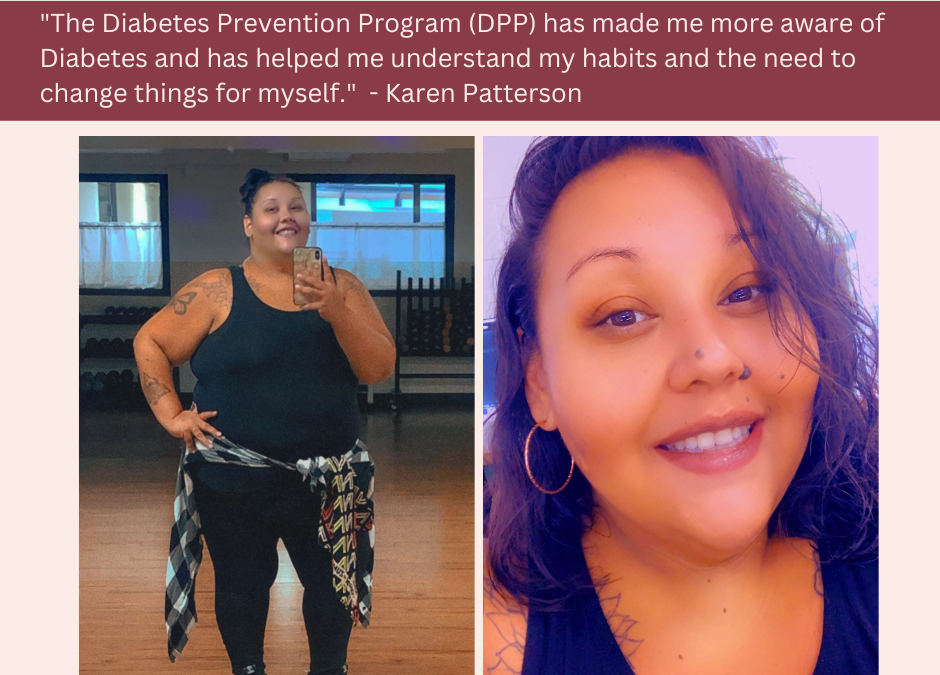
by Michelle | Feb 5, 2024 | Being Well, Featured, Work Well
At the start of a new year, many of us think about restarting exercise regimens, meal prepping and other weight-loss oriented goals. While losing weight is good for our self-image and our health, it can often be difficult to achieve. If we aren’t successful, it can cause us to “throw in the towel” – at least until the start of the next new year. What if there are other pathways to become healthier, happier versions of ourselves?
What is often overlooked is that our health goals are usually more about how we feel than how we look. We want to be able to do the things we used to do, be happier, have more energy and a greater sense of meaning in our lives. While running a 5K or eating the recommended daily servings of vegetables will help us achieve those goals, there are other ways we can get there.
Think back to when you were 7, 11, or 20 years old. What brought you joy? Were there hobbies or activities you enjoyed doing, that made you feel good about yourself; where you got to put your unique skills to the test, or share your gifts with others? As a child I loved reading and journaling from a very young age. By the time I graduated from college, I had abandoned both of those pastimes. I simply hadn’t had time between going to school and working full time. Once I began to reintroduce those activities, I felt my old self coming back. And that prompted more awareness of what I needed to feel fulfilled. And what was draining my energy.
Maybe it’s time to get out your golf clubs, tune that instrument or dust off your art supplies. Or, maybe this is the time to make your someday start today. What is the thing you have caught yourself saying multiple times? “Someday I am going to ‘do the 52 hikes challenge,’ or ‘grow a vegetable garden’ or ‘learn how to crochet.’” There are free, local resources to help you get started with all of these activities. Our local library system offers Mango, a free language learning app. They even have a “library of things,” like binoculars to go bird watching or tools to start that woodworking hobby. The possibilities are endless.
I know what you’re thinking. This is all well and good but I do not have time for such frivolities. The truth is that most of us are spending at least some of our disposable time on social media, streaming, or watching television. If we reprioritized 30 minutes a day of time spent doing passive activities and dedicated it to pursuing a hobby, we could experience significantly more joy and meaning in our lives.
Here are a few tips for success:
- Conduct an inventory of your favorite hobbies, past and present
- Consider what you could realistically reintroduce into your current schedule
- Notice activities others do that you admire or find yourself being curious about
- Research what it would take to start a new activity and break down the process into small, manageable chunks (for example, if you want to learn to crochet, reach out to Latimer Quilt Factory and ask about lessons, groups, mentors or other ways to get started)
- Schedule time for your hobby/activity so you are more likely to keep it a priority
- Invite a friend to join you
- Share your favorite hobbies on social media or at info@tillamookcountywellness.org
Written by Michelle Jenck, M.Ed., Certified Behavior Change Coach & Tillamook County Wellness Coordinator
For more local health and wellness information, visit www.tillamookcountywellness.org or follow Tillamook County Wellness on Facebook and Instagram.

by Michelle | Jan 25, 2024 | Being Well, Featured, Move Well, Uncategorized, Work Well
Intro to Behavior Change, Part 1
Every day we hear the results of another study, telling us what is making us unhealthy. Eat this, don’t eat that. Move like this, not like that. There are, of course, good reasons to become educated about making healthier choices. We are on an unsustainable track both for our own health and for the economic health of our nation. In all reality, our health care crisis – the skyrocketing cost to treat preventable, chronic disease – is a greater threat to our survival than global climate change. As with all things, though, we have made the solution far too complicated for the average person to comprehend.
Let’s get down to the fundamentals. First, we simply have to become more aware of our own habits. How do I feel when I eat this and don’t eat that? How do I feel when I walk up a flight of stairs? How much energy do I have? If the answers to these questions are not the ones you’d like, then it is probably time to start making some changes.
Change is hard. Crazy hard. It’s really inconvenient. That’s how we got into this mess in the first place. It is human nature to take the path of least resistance. It takes time and effort to change the way we live our lives. For most of us, this is where we end up – in a state of knowing we need to do something but not believing that we can really do anything about it. To be successful, we need to make the changes to our habits small, easy-to-adopt, and enjoyable.
Behavior Change 101, Part 2
Awareness. This is where it all starts. We have to stop and look within ourselves to even begin to understand what is and isn’t working. This goes for health and nutrition but also for relationships, self-esteem, work performance, you name it. What is the famous saying? The first step is admitting you have a problem.
You don’t have to become a Yogi (yoga instructor, not the bear) to become aware. You don’t have to take special classes (although that might help). You don’t have to change the kind of person you are (although you probably will in the end). You just need to be open to the idea of changing.
We see things more clearly when we take a step back and give them our undivided attention. Take a few moments each day to breathe. Just be. Relax. In doing so, the busyness of the world, the noise of our self-talk, the daily to do list, they all disappear and we are simply left with ourselves and the truth. Layers of thought, emotion, and even traumatic events are often responsible for the “dis-ease” that causes disease. Without going through this process, it may not matter what changes we make to our nutrition or exercise habits. Our bodies seek balance. This applies to our emotional state as well. When we are out of balance, there are a whole host of physiological processes that go off-line as well.
Unfortunately, the typical American lifestyle does not lend itself to mind-body balance. It can seem overwhelming to understand what is out of balance and what we need to do about it. This is where awareness is key. At some point, most of us have tried to determine how many calories, grams of protein, fats or carbohydrates or how many minutes of high or low intensity exercise we should be getting each day. And, statistics show that this hasn’t worked out so well for most of us . . . at all.
So, how do we identify and make the changes we need to make? Pay attention to your own body and mind. What you think and feel, what you read, and what you hear others say all provide clues if you are tuned in. Listen to that voice in your head, that gut instinct that kicks in and says, “Hey, that’s what I need to do. I can do that.” I call it the When-Harry-Met-Sally-Moment – “I’ll have what she’s having.” Pay attention to what inspires you and follow that thread.
Tips for Successful Behavior Change, Part 3
Why we want to make changes is almost as important as what we want to change. The “why” often determines our chances for success. If we are making a change for our spouse or boss, or as a quick fix (think high school reunion), we might not be as emotionally invested as we need to be successful over the long term. You need to have good reasons to make any lasting change. Maybe it is to be around to see your kids or grandkids grow up or maybe it is about improving your quality of life. Whatever it is, it needs to be meaningful to you.
Setting SMART goals is key to successful behavior change. SMART is an acronym for research-based characteristics that significantly increase the likelihood of reaching one’s goals. They should be:
- Specific
- Measurable
- Attainable
- Relevant
- Time-Bound
For example, if I want to walk 2 miles a day but am currently completely sedentary, I need to break down my goal into manageable pieces. I also need to be realistic. How far can I, and more importantly, will I, walk each day. Maybe it is just a daily walk to my mailbox for the first week. Then, I can walk to the end of the block, then 3 blocks, and so on until I have achieved my goal. It is important to set a time frame for each level of goal attainment. This can be daily or weekly. It needs to be short enough to generate immediate success but also long enough to form a new habit as a foundation for the next step and that usually takes about 8-10 weeks.
Work with your strengths and interests when approaching changes. If you like to cook, then it makes sense to find healthy recipes you would enjoy making. If you hate cooking, it will be important to simplify what nutrition changes you are making so that you can still be successful. It can be as simple as choosing the prepared veggie tray and a container of hummus from the grocery store. This principle is especially important when it comes to physical activity. If you enjoy being outdoors, consider walking or hiking. If you like people, music or dancing, you could join a group fitness class. If you want something more mindful, try Tai Chi, Qigong or Yoga. The key is to look for ways to integrate a positive, healthy change with your personality, interests and strengths.
One of the reasons people struggle with behavior change is because they have been unsuccessful in the past. Three common reasons for this are 1) Setting unrealistic goals 2) Giving up after the first setback, or 3) Taking on too many changes at once.
To avoid these, it is important to set a narrow list of ridiculously small goals. This allows us to celebrate mini victories which perpetuate future successes. BJ Fogg, a researcher at Stanford University, calls these “Tiny Habits.” He uses an example for someone who wants to develop the habit of flossing their teeth. He suggests flossing one tooth each night after brushing your teeth. Just one tooth. This is based on the fact that a 3 second action of flossing one tooth is perceived as much more doable than the 30 second action of flossing all of our teeth and, therefore, we are more likely to stick with and succeed at the development of this new habit. As sad as this example is, he is 100% right (and he has the research to back that up.) This says a lot about human nature and explains a lot when it comes to why behavior change is so difficult.
To summarize, there are some tricks to successful behavior change:
- Become aware of what you want to change and why
- Set SMART goals
- Make changes that fit your personality, strengths and values
- Start small (REALLY small) and build on your successes
Written by Michelle Jenck, M.Ed., Certified Behavior Change Coach
For more local health and wellness information, visit www.tillamookcountywellness.org or follow Tillamook County Wellness on Facebook and Instagram.

by Michelle | Jan 16, 2024 | Eat Well, Featured, Move Well, Work Well
Tillamook County Wellness was launched in 2016 as a “Year of Wellness” with a simple goal – to encourage people to make small changes to become healthier. After a successful kick-off year, the Wellness Advisory Committee decided to ride the wave of community support for this grassroots population health improvement initiative and set a ten-year goal to reduce the percentage of people in Tillamook County who were at risk for developing Type 2 Diabetes. This ambitious goal had one significant challenge. How would we track our efforts to determine if we were having an impact? We can’t measure what doesn’t happen. Or can we?
In 2016, the percentage of adults in Tillamook County living with a diagnosis of diabetes was 12%. In 2023, the same source for this data (County Health Rankings), reported Tillamook County rates at 8%. Another bright spot for comparison is that we began our journey with a health ranking in the bottom third of Oregon counties. Today we boast a #12 county health ranking status out of 35 ranked counties in the state. Anecdotally, we are making progress. More concretely, we have built more trusting relationships, established policies, programs and strengthened partnerships in ways that are making Tillamook County a healthier place to live, work, play, learn and age.
So, who is Tillamook County Wellness and what exactly are we doing to improve health and quality of life in Tillamook County? It’s all of us and it’s everything. This is what collective action looks like. It takes everyone thinking, working and living together intentionally in ways that promote health and well-being.
In 2023, 34 community and government organizations, businesses, schools, healthcare partners and many, many volunteers all worked together to move the dial on health. Grants were written and awarded for building a sustainable healthcare partner network, implementing a health literacy campaign and partnering to hold a bike rodeo where more than 30 bikes were given away to area families. Walking groups, led by volunteers, met weekly throughout the county. Hundreds of vegetable seeds were distributed so our local gardens can “Grow Well.” Free wellness classes were held in English & Spanish for everything from how to prevent and manage chronic diseases like type 2 diabetes to how to manage personal finances.
Upstream efforts to build more housing, increase the availability and affordability of childcare and expand education pathways for higher income-earning potential are just some examples of how partners are working to create the conditions for a healthier community. Changes to the built environment such as community walking paths, segments of the Salmonberry Trail and a bike pump track are other examples of work being done to make it easier for people to get and stay healthy. Area schools work with Food Roots to teach kids where their food comes from and how to cultivate and cook it. Nutritious recipes with easy-to-find, inexpensive ingredients are being shared and devoured based on the social media stats behind those shares.
The point here is that wellness is more than a number on the scale or a medical record. Wellness starts with people’s ability to have a safe place to live, healthy food to eat, an education that leads to a living wage job, a community that has adequate supports for mental health, addiction, and for families with loved ones experiencing disabilities or different abilities.
Often, when we think about the challenges that negatively impact community health, we wonder, “why isn’t someone doing something about this?” Working in community well-being for a decade, it is clear to me that much is being done and a lot of positive changes are resulting from those efforts. The organizations responsible for much of this work are often constrained by lack of funding, staff or volunteers. You can make a difference by making donations to your favorite charities, getting involved as a volunteer, and advocating for the good work within your family and peer circles. After all, giving back is good for your health.
Written By Michelle Jenck, M.Ed.,
To learn more, get involved and donate, visit www.tillamookcountywellness.org or email us at info@tillamookcountywellness.org.

by Michelle | Nov 8, 2023 | Eat Well, Featured, Move Well
October was Emergency Preparedness Month. It was a reminder that we can be caught off guard at any moment and that negative consequences of the unexpected can be greatly reduced if we take advance action to prevent the worst from happening.
Our most recent emergency was the covid-19 pandemic. As we rebuild after that event, it is important to consider what we learned and to apply that knowledge to avoid further devasting outcomes. What we learned during the covid-19 pandemic is that individuals with chronic diseases like type 2 diabetes were at far greater risk of severe illness and death.
November is Diabetes Awareness Month. Type 2 Diabetes is occurring with far more frequency than earthquakes or hurricanes. We know what we need to do to prepare for and prevent its onset but we are not taking action in time to prevent it. We can screen for both type 2 diabetes and prediabetes. If we identify the condition at the prediabetes stage, there is much a person can do to reduce the likelihood of developing type 2 diabetes.
A simple blood test conducted by your medical provider is all that is needed. An A1C between 5.7 and 6.4 indicates a person is prediabetic. It is at this stage the condition is considered reversible. This blood test is part of an annual exam or well check. We owe it to ourselves and our loved ones to go in for those yearly checkups. Just like we take our cars in to have the oil changed, tires rotated and balanced, we need to have the same level of care and concern to keep our bodies in good working order. It’s preventive maintenance and it saves us a lot of money and frustration down the road. Just like avoiding maintenance of our car or home, the minor inconvenience of a doctor’s visit is minimal compared to the costs of delayed maintenance.
If we discover we are in that prediabetes range, the course of action is simple but not always easy. Monitoring lifestyle habits like sleep, water intake, nutrition, and physical activity and making small changes (or perhaps large changes) will significantly reduce risk for developing type 2 diabetes. These changes will also reduce risk for heart disease, stroke and cancer. Most importantly, making these changes improves our mood, energy and overall quality of life. Once we begin feeling better, we become more motivated to stick with our new habits.
Read below a recent interview with Karen Patterson who is currently taking National DPP, she tells us how she lost 50 pounds in the first 16 weeks!
Karen Patterson, 36 years old, two daughters, lived in PNW her whole life, moved to the Oregon Coast last year and is getting started on a health and wellness journey. These are her thoughts on our program.
“The Diabetes Prevention Program (DPP) has made me more aware of Diabetes and has helped me understand my habits and the need to change things for myself.”
“I liked learning from everybody else that was pre-diabetic in class. I thought it was a good way of getting to know people in your community. Everybody struggles, and on the days where I felt like I was struggling the most, and felt bad about it, I didn’t feel alone because it wasn’t just me in class (DPP). I loved getting to know everyone!”
“I loved meeting week after week, and the material was great. The fitness bands and the calorie book were fun things to get out of class. I would definitely recommend this class (DPP) because I think it is a step in getting to know what could be in your future if you are somebody who is pre-diabetic. I think it’s great for anyone to have the opportunity to do it (DPP). I like working out now, and I like eating healthier. It was a great class, I loved it!”
If making these changes feels overwhelming, consider joining the National Diabetes Prevention Program at the YMCA. If you’d like more information contact Kelly Benson at 503-842-9622 ext. 111 or kbenson@tillamookymca.org.

by Michelle | Oct 5, 2023 | Being Well, Featured, Work Well
To promote the well-being and growth of children, access to regular physical activity is essential. Over the past three years, Tillamook County Wellness’ Health Promotions Committee has been offering fun, physical activity programs designed to introduce families to local outdoor recreational opportunities. Where participants qualify for exciting prize drawings.
Historically, we’ve collaborated with schools, local libraries, the Oregon Food Bank, and various community partners to promote these activities. Thanks to the generosity of our donors, we’ve been able to incentivize participation through rewarding prizes.
Tillamook County Wellness would like to encourage more family participation, especially among families with children aged 0-17 years. Since younger children might not have the means or easy access to parks and other physical activity locations on their own, they depend on older family members for transportation and motivation. This realization has led us to develop a more deliberate strategy for engaging families in 2024.
We plan to identify and acquire participation prizes that are specifically appealing to families. The Kiwanis Community Giving Award Funds will play a crucial role in enabling us to achieve this goal.
Tillamook County Wellness extends its heartfelt gratitude to be the recipients of the Kiwanis Community Giving Fund. Their support is invaluable in helping us achieve our mission of promoting health and well-being in our community to young children in Tillamook County.
Picture of: Janeane Krongos of Tillamook Family Counseling Center and Ron Rush of Tillamook Kiwanis Club
Tillamook County Wellness is a community-driven initiative with a primary focus on reducing the risk of chronic diseases by promoting healthy behaviors from an early age. We believe that by making healthy choices more accessible and enjoyable, we can cultivate thriving and vibrant communities.





